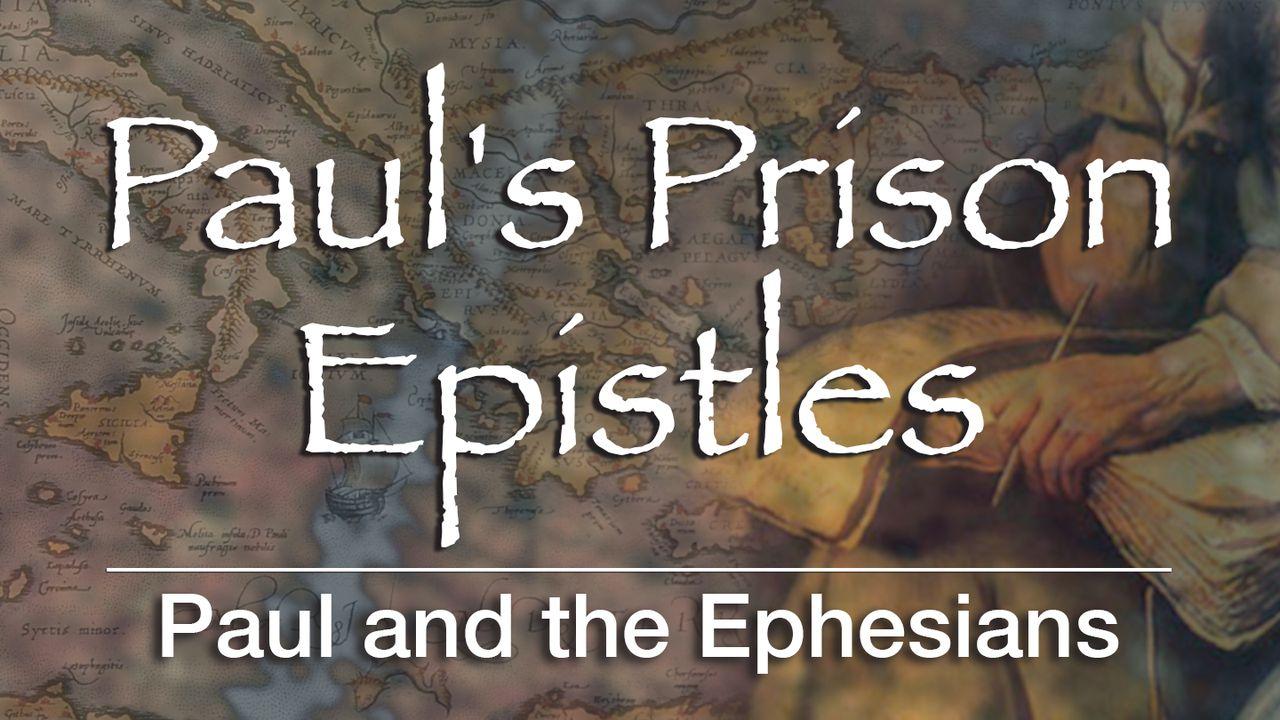Paul's Prison Epistles: Paul and the EphesiansSample

Prayer: Ephesians 1:15-23
Paul’s prayer consists essentially of three parts: his thankfulness for the believers to whom he wrote; a twofold petition that the Holy Spirit would enlighten them; and an extended explanation of that enlightenment.
Paul’s prayer repeats all the same elements that we looked at in the preceding section of praise. It includes strong Trinitarian theology explicitly honoring the work of the Father, the Son, and the Holy Spirit, as in verse 17. It emphasizes that salvation comes through the atonement of Jesus Christ in verses 19 and 20. Its main petition, in verses 17-19, is for further revelation of the gospel, in the form of enlightenment that enables believers to understand the blessings they have received. And it speaks of the hope of our future glory in verse 18.
And just like the section on praise, the larger idea of the kingdom of God provides the context in which all of these other ideas are mentioned.
When we explored the theme of the kingdom of God in Paul’s praise, we focused on three details: God’s sovereign rule, which includes his power and authority; God’s benevolence, which consists of the good things he freely gives to us; and our inheritance in Christ, which includes all the blessings of God’s covenant with his people. And not surprisingly, all three of these kingdom elements are present in his prayer as well.
Paul mentioned God’s sovereignty when he spoke of the Father’s “incomparably great power” and “mighty strength” in verse 19 and when he spoke of Christ being enthroned above all other rulers in verse 21.
And he spoke of God’s benevolence when he mentioned that God’s power is “for us who believe” in verse 19, as well as when he said that Christ rules as king for the benefit of the church in verses 22 and 23.
And finally, in verse 18 Paul spoke directly of Christ’s “glorious inheritance in the saints,” which is the hope to which believers are called. Paul was able to speak of Christ’s inheritance as our hope because, as he teaches in the body of the letter, Christ shares his inheritance with us so that his inheritance is our inheritance, too. Simultaneously, this alludes to the common Old Testament idea, found for example in Deuteronomy 9:26-29, that the kingdom of Israel was God’s own inheritance, and that the people of kingdom were greatly blessed by this arrangement.
Scripture
About this Plan

This plan examines how Paul designed Ephesians to teach Christians how to build, maintain and thrive in God's kingdom.
More
We would like to thank Third Millennium Ministries for providing this plan. For more information, please visit:
http://thirdmill.org
Related Plans

The Power of Thanksgiving

Washed by the Word (New Testament)

And He Shall Be Called: Advent Devotionals, Week 3

Every Day Relationship - 21 Days

God vs Goliath: The Battle Before the Battle

Grace for Your Pace - How to Burn on Instead of Burn Out

The Seed and the Soil

An Encounter With Jesus

Love Letters to God
